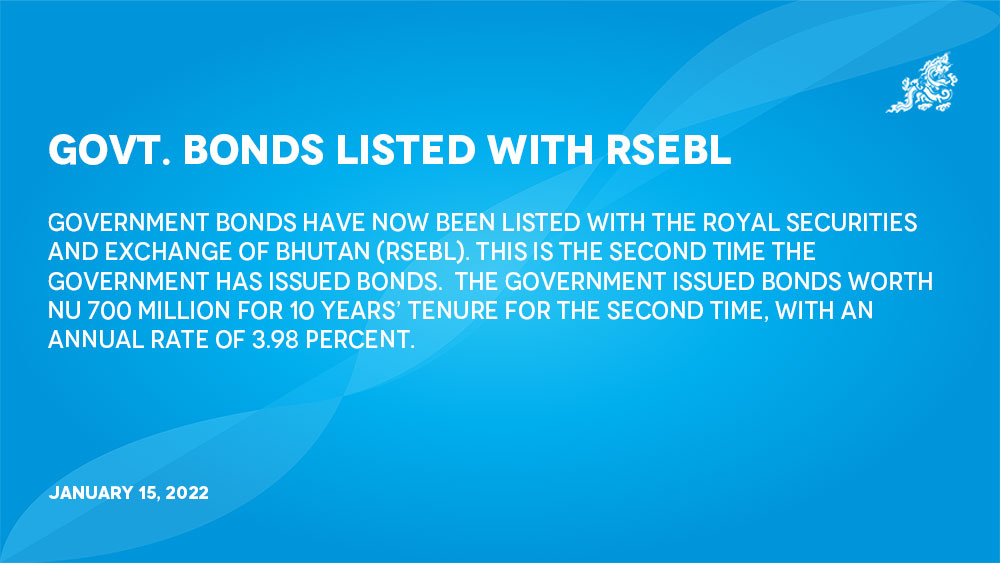Dechen Dolkar
Government bonds have now been listed with the Royal Securities and Exchange of Bhutan (RSEBL). This is the second time the government has issued bonds.
The government issued bonds worth Nu 700 million for 10 years’ tenure for the second time, with an annual rate of 3.98 percent.
The first one was issued in September 2020, where bonds worth Nu 3 billion for three years with an annual coupon rate of 6.5 percent in the name of government were offered for public subscription through the Royal Monetary Authority (RMA).
A bond is a loan from an investor to a borrower, such as a company or a government. A share is a percentage of ownership in a company or a financial asset.
The officials from RSEBL said that the coupon rate was the same as the interest rate. It is an annual percentage rate of interest paid on the face value of a specific issue of the government bond.
If the creditor buys one bond worth Nu 1,000, which is the face value of a bond, the creditor will get Nu 65 every year, and at the end of the maturity he will get back the initial investments in the case of the first bond.
“With bonds, the returns will not fluctuate, whereas with shares, the returns will depend on the performance of the companies,” he said.
The officials said that the first bond was issued at a fixed coupon rate where the government can meet the set amount of issued bonds. The second bond was auctioned: bidders had to bid for the coupon rate.
The RMA acted as a broker.
Officials said that the coupon rate of 3.98 percent was the lowest rate quoted by the investors at which the volume was fulfilled.
For the first bond, there were 56 investors. For the second bond, there was only one investor.
“The shareholders have more opportunities for investing the bonds in the secondary market, since they are listed,” RSEB officials said, adding that the secondary market provided a liquidity option where they could re-sell the bonds.
The government bond is a sovereign guarantee.
According to the rules and regulations of the issuance of the government bonds, government bonds may be allotted through a multiple-price or a uniform-price auction method, which will be specified in the term sheet provided during the auction announcement
Bonds issued to the public through auction and public subscription will be listed on the RSEBL.
The Public Finance Act 2007 (amended 2012) authorises the government to raise loans. Section 125 of the Public Finance Act states that the minister of finance may raise a loan from any person, organisation, or government, either within or outside Bhutan.
The minister of finance may borrow money to finance budget deficits; to refinance maturing debt or a loan paid before the redemption date; to maintain credit balances in the bank accounts and on-lending to state enterprise and other legal entities and any other purpose approved by the Lhengye Zhungtshog.


